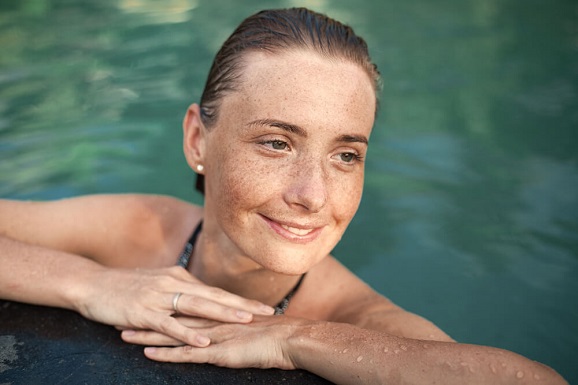For our purposes, we’ll refer to them as sun spots since they appear on parts of the body that have been most exposed to sun. Sun spots are common in adults older than age 50 but they can appear in people in their 20s and 30s who’ve had significant sun exposure. Fair-skinned people are also prone to them. If you frequently use a tanning bed, you might also get them. The spots can range from freckle sized to as big as a half inch. They also can cluster or clump together.
Sun spots are typically painless and harmless, and don’t require medical care. But, have your doctor examine spots that show any of these signs: grow bigger, become firm, turn dark or red, have an irregular border or become elevated, scaly or rough. You should also be examined by a doctor if the spots have any of these characteristics: they itch, bleed, become tender, shiny or waxy. These changes could mean melanoma, a skin cancer. You might need a skin biopsy to test irregular sun spots for cancer.
How to Prevent Sun Spots
- Stay out of the sun from 10am to 2pm when the sun is most intense
- Use sunscreen with a sun protection factor (SPF) of at least 30 about a half hour before you go out in the sun. Apply and reapply sunscreen generously especially if you’re swimming or sweating.
- Cover up with large-brimmed hats, long sleeves, long pants or long skirts.
- Wear sunglasses.
Sun Spot Treatments
Talk to your doctor or dermatologist about these options:
- Over-the-counter medications
- Prescription medications such as bleaching creams and lotions that can fade sun spots
- Medical procedures that include chemical peels, dermabrasion, cryosurgery (freezing) or pulsed light waves. These procedures breakup and destroy spots or remove and smooth the outer layer of skin so new skin can grow.
As you age, you face new skin-related challenges during each decade. The unique specialty of dermatology focuses on the diagnosis, comprehensive care and management of skin, scalp, hair and nail conditions. For a physician referral to a dermatologist, call 1-800-BayCare (1-800-229-2273) or find a physician near you.




